By Myra Colis | Photo credits: Joy Tallayo
December 10, 2016 marked a historical day for the indigenous people like me from the Philippine Cordillera region (also known as Igorots) who are now living in the Netherlands. Forty of us, including our European loved ones, gathered that day for the first time to reminisce our ethnic origin in lieu with our celebration of the Christmas season.
Notably, I was dealing with grief that time due to miscarriage and was so anxious because the next day is my scheduled surgical procedure. To my surprise, that day was more than a social gathering. Something powerful within fired up and magically transformed my grief and anxiety into pure joy and fulfillment!
I found myself. The indigenous me alive again!
As the day unfolds, I realized how much I’ve missed and neglected to re-connect with my deeper roots, my indigeneity (indigenous identity). Dressing myself and seeing my fellow Igorots in our ethnic attires, singing the Cordillera Hymn and our traditional songs together, listening to the homey sound of the gongs and sulibao being played, and watching others dance our cultural dances gave me an overwhelming wave of nostalgia.
Just for a brief background, I’ve spent almost my adult years away from my homeland to explore life abroad. I’ve lived in China for about 10 years and going to my 5th year now here in the Netherlands. For quite some time, I’ve also stayed in Poland, France, Hong Kong and South Korea. My love for travel has also brought me to Mongolia, Austria, Switzerland, Italy, Germany and Belgium.
In my years of country hopping, I find people’s individual and cultural differences amazing that I enjoyed adapting to every new (and typically progressive) environment, culture, mindset and values. Little did I know that I’m slowly forgetting my own (if not losing it).
Our Igorot dances and steps have meanings, but I can’t remember a single one (despite the fact that I used to be in a cultural performing group back then). As we sang one of the famous local songs, Nanlayad nan Likhatan, I felt deeply ashamed of myself for not understanding what some of those local words even meant! I’m proud of where I come from, but forgetting what it’s like to be an Igorot doesn’t justify that statement.
So having the opportunity to relive my indigeneity with fellow Igorots whom I share the same cultural heritage with was an eye-opening experience. I’ve realized that no matter how much you’ve moved on with your life, it matters big time to hold on to your cultural roots regardless of any social, economical or technological advances there are.
Hold on to it! There is no greater reward than finding yourself again just by doing so.
Then I wonder, was it just me? Or do my fellow Igorots who were there that day also share the same reflection or similar experience?
Interestingly, they do.
So what difference does it make?
Everyone who shared their personal reflection finds the importance of celebrating and reminiscing one’s cultural roots whenever possible, even if you’re one who has already embraced new and progressive cultures, environments, mindset and values. Here’s why.
To explain each point, it’s best to hear the voices of them who’ve been there.
1. It gives you a sense of pride.
“I’m very proud to be an Igorot. It’s not only because of the rich culture and tradition that we have but more so because of how our forefathers fought and defended our lands and people against Spanish colonization and all other attempts of invasion and exploitation,” shared Ronnah Tingalon, a native of Mountain Province who’s been living in the Netherlands with her Dutch husband for 6 years now. “Having this opportunity to gather and solidify our ethnic community here despite being so far away from home brings me so much happiness. It brings me great hope, knowing that even if I’m far from my ethnic origin there’s still a way for me to pass the invaluable knowledge of my cultural roots to my future children.”
2. It reconnects lives and strengthens family ties
“I grew up not knowing my father because he disappeared even before I was born. Gladly, I met someone at the gathering who knew my father well. Though our conversation wasn’t that long, listening to stories about my father has somehow made me feel so connected,” expressed Joy Tallayo, a native of Mountain Province and now residing abroad for 7 years with her Dutch boyfriend and 1yr old daughter. “Needless to say, I’m thousand miles away from my hometown, which makes it difficult to travel as often as I want to. But now knowing that we can still do something to bring our first home closer to wherever we are is a happy and lucky thing.”
3. It builds bridges and strengthens community
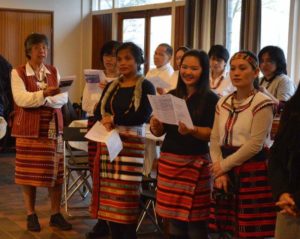
Community singing of traditional Cordilleran songs
“While we are far from our Philippine Cordillera, the beating of the gongs and dancing, the Cordillera costume of some ladies and gentlemen, and singing of ‘Nan Layad nan Likhatan’ bring us back (for some moments) to our mountain home,” said Yvonne Belen from Mountain Province who left the Philippines in 1985 during the Marcos dictatorship, currently a Dutch citizen and living with her husband- Cesar Taguba- who is also a fellow Igorot from Benguet province. “The presence of our neighbor organization, Cordillera Community in Belgium (Cordi-Bel), added color and sound. We had an afternoon of sharing TNCC’s ideas to the audience and of bonding with those who attended.”
“We dont have an Igorot tempoyog (gathering) nearby the region we live in Germany, so my sister and I joined the gathering. It’s such a joy to reminisce and cherish where we came from through songs, dances, dining and catching up,” added Josephine Tallayo, also a native of Mountain Province who’s been living in Germany for 20 years with her German husband and 20yr old daughter.
4. It awakens the authentic you.
“There’s nothing more liberating than being true to yourself,” uttered Renijune Abaya from Benguet Province and has now been living in the Netherlands with her 3 children for 8 years. “I’ve always wanted to have our folks gathered like we did. So what took place on December 10 is a dream come true for me. I haven’t played the gong nor tried dancing the steps from other provinces, and yet, it surprised me to have done it with grace as if it wasn’t my first time! It’s amazing to be myself, enjoying the indigenous me and feeling the warmth, appreciation and enthusiasm around.”
“I’ve lived in the Netherlands for about 20 years now, and I haven’t been to any ethnic gathering, especially that of my very own, not until now,” said Jean van de Peut from Abra and now a Dutch citizen living with her 3 children in the Netherlands. “Watching our fellow Igorots from Belgium who came and performed our native dances gave me so much inspiration. Such gathering felt so personal and unique… and hoping that for the next one, I’ll be able to also showcase our Tingian dance from Abra.”
5. It makes you awesomely different.
“I joined the Igorot gathering with my Dutch husband and my son, and it’s a delight to see my husband interested in gaining more understanding of who I am, especially my ethnic origin. He said that by attending the gathering he felt like he has been to the other side of the world,” wrote Mercedes Dewalan, a native from Benguet Province who’s been here in the Netherlands for 4 years now. “My son grew up in the Philippines and for the first time after nearly 2 years here, he felt like he is back home for a day.”
6. It drives one’s homesickness away.
“Joining my fellow Igorots has certainly driven my homesickness away. Having no family here and living in someone else’s home for cultural exchange is oftentimes lonely,” shared Aprille Sandiwa, a native from Benguet province and came to the Netherlands as an au pair for less than a year now. “The TNCC event on December 10 gave me a perfect example of what it truly means to be with a community of people sharing the same culture, tradition, beliefs, traditions and also personalities. It feels like home to have a reunion like this… I can’t wipe the smile and laughter on my face even few days after the event was over.”
7. It brings ignorance closer to awareness
“In the Philippines, there is a common misconception about the Igorots, especially when it comes to our looks,” said Aida Tingalon from Mountain Province who left the country for more than 3 decades and currently a Dutch citizen. “We, Igorots, are mountain dwellers, and for some reasons, Filipinos from the lowlands oftentimes picture us as dark, short and with a tail, which is obviously not the case. So holding on to my cultural roots by means of reliving it once in a while, meeting with fellow Igorots here in the Netherlands, and happily sharing knowledge of who we really are are great ways to correct these inaccurate information and faulty picture of us.”
8. It creates a support system for community members.
“It feels great to witness the support that one gives to another. Like the spirit of Christmas, there’s gladness and real joy in the air. I see everyone helping out from preparing the venue to playing the gongs, listening to one another, sharing stories and even cleaning up,” commented Minerva Bulong, a native of Ifugao who came along with her Dutch husband and son who enthusiastically joined the community dancing with cheers. “It is my hope that we continue to be gentle, kind and supportive to one another, which is the real essence of building unique communities such as ours.”
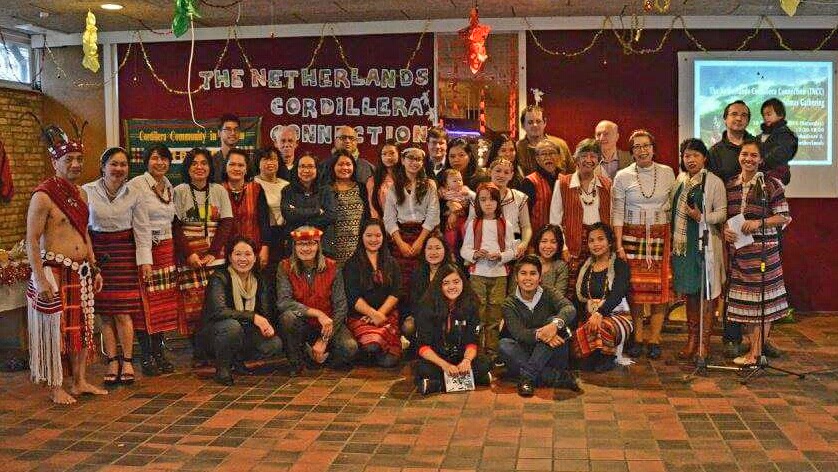
Participants at the December 10 gathering of Igorots in the Netherlands
In conclusion
What took place that day was a real personal eye opener not only for me but also to those who were with me to witness the making of The Netherlands Cordillera Connection.
No matter where you are, what you do and what your aspirations or dreams in life are, remember to hold on to your cultural roots. It can somehow spark the fire in you, especially when times get gloomy and cold. Besides, the stronger, healthier and fuller your knowledge of your deep roots is, the stronger, healthier and fuller can you actually grow and succeed in life.
Which of the 8 reasons can you possibly relate with? Or do you also find it important to hold on to your indigenous identity? Feel free to share your thoughts on the comments box below.
ABOUT THE AUTHOR
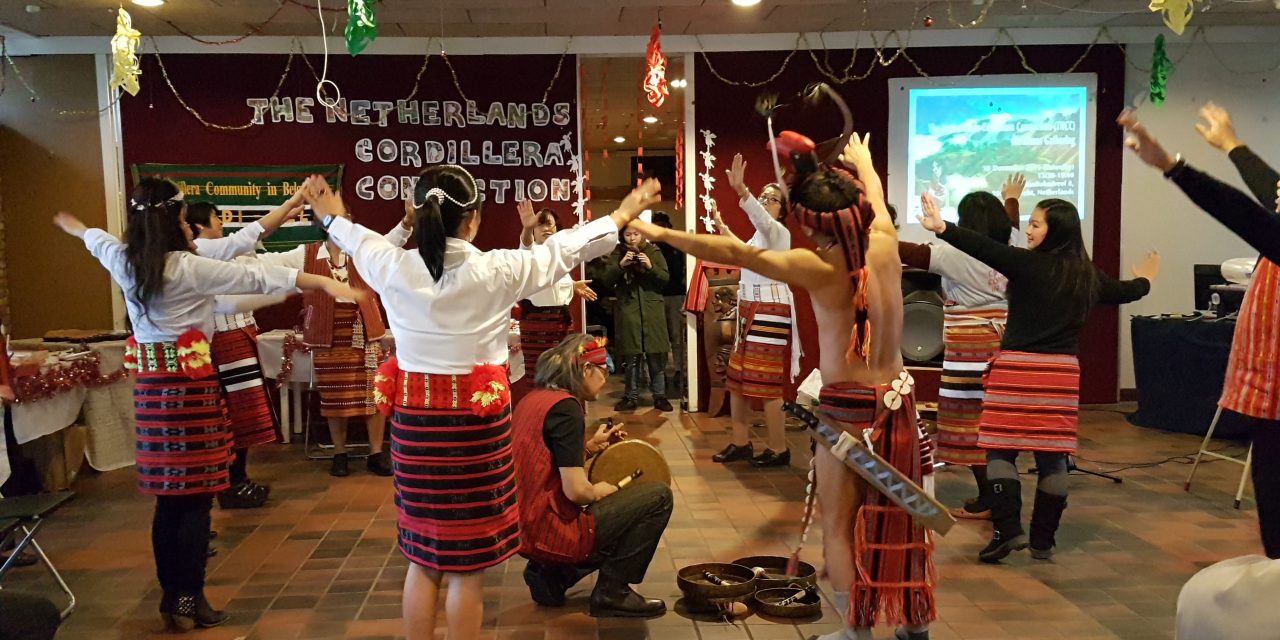
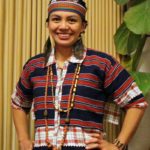
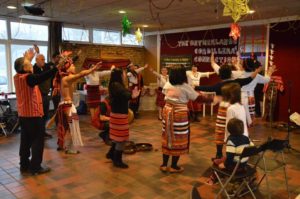
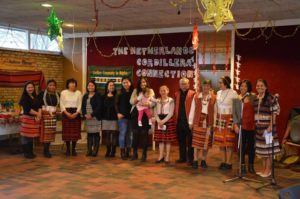
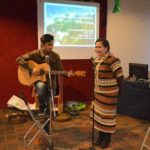

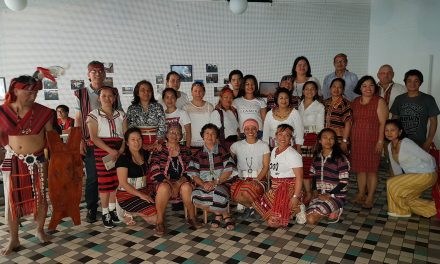

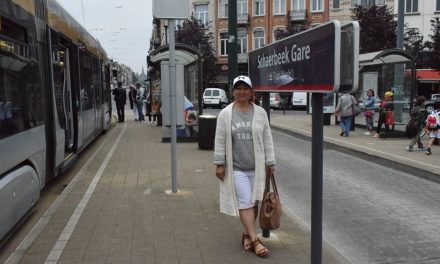
Wow! Very nice article. All have been said. I have no other words. Just being proud.